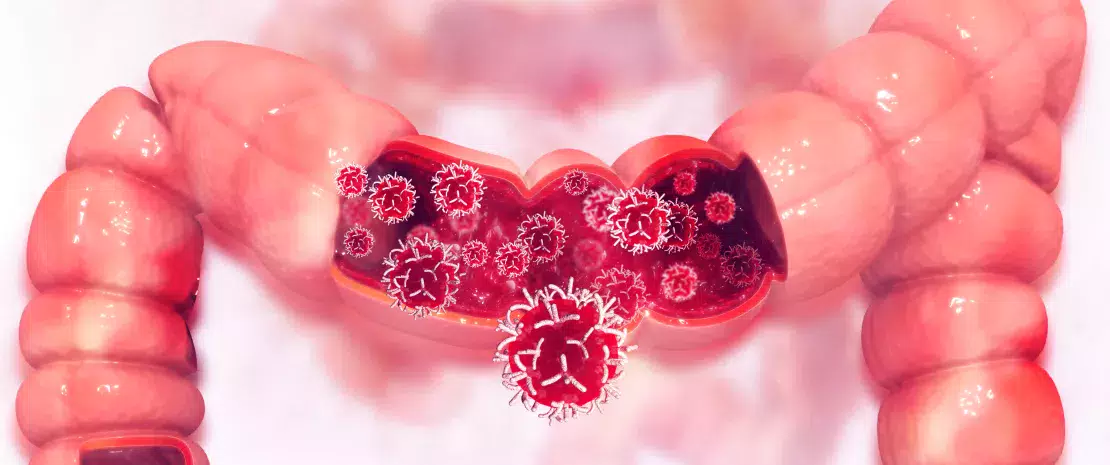Are virome and mycobiome involved in colorectal cancer?
Recent studies explored for the first time the fungal and viral components of gut dysbiosis in patients with colorectal cancer. New diagnostic and therapeutic avenues might arise from the results.
Lay public section
Find here your dedicated section
Sources
This article is based on scientific information

About this article
Research on colorectal cancer (CRC) is mainly focused on bacterial populations but is gradually widening to include other microorganisms (fungi and viruses). A study carried out by a team from Hong-Kong focused on the specificities of the mycobiome in patients with colorectal cancer. Stool analysis from 73 patients and 92 healthy volunteers revealed a fungal signature in patients with CRC: the Basidiomycota:Ascomycota ratio is increased (the two most abundant phyla in the human mycobiome), although fungal abundance and diversity remain unchanged.
Opportunistic and protective yeasts
More specifically, 6 fungal genera were more abundant in the stools of patients with CRC, and among them, some opportunistic pathogens such as Acremonium (Ascomycota) and Rhodotorula (Basidiomycota). The same was observed for Malassezia yeast (Basidiomycota), which is usually found in the skin and is involved in atopic dermatitis, among other diseases. It could thus be able to colonize the intestines though a mechanism similar to the one used by Candida albicans (Ascomycota). Some species of Aspergillus were also more abundant in patients with CRC, especially A. flavus which produces aflatoxin and is potentially carcinogenic. On the contrary, the levels of Saccharomyces cerevisiae yeast, known to colonize the gut microbiota and to have other anti-inflammatory and regulative properties of the immune system, were decreased in patients with CRC. According to the authors, this could constitute a potential therapeutic approach. These fungal dysbioses were validated by the same team in two other cohorts and could be used as diagnostic biomarkers.
An indirect role for bacteriophages?
In another study, North-American researchers analyzed the stools of 30 patients with carcinoma, 30 patients with adenoma and 30 healthy subjects. They observed that viral diversity and abundance were not altered in patients with carcinoma / adenoma, and shed light on the role of certain bacteriophages (from the Siphoviridae and Myoviridae families, among others) in colorectal carcinogenesis. According to scientists, some bacteriophages could disrupt colon bacterial populations and be associated to tumor progression. By promoting bacterial lysis, they could allow opportunistic species anchored to the epithelium to produce a biofilm favoring the penetration into the intestinal lumen of oncogenic bacteria which trigger the inflammatory immune response. Unless… bacteria are the one to impact the virome, and not the opposite? A lot of hypotheses have been proposed and several elements still need to be clarified in order to extend the diagnostic and therapeutic arsenal and fight the third most commonly diagnosed cancer in the world in 2018.






